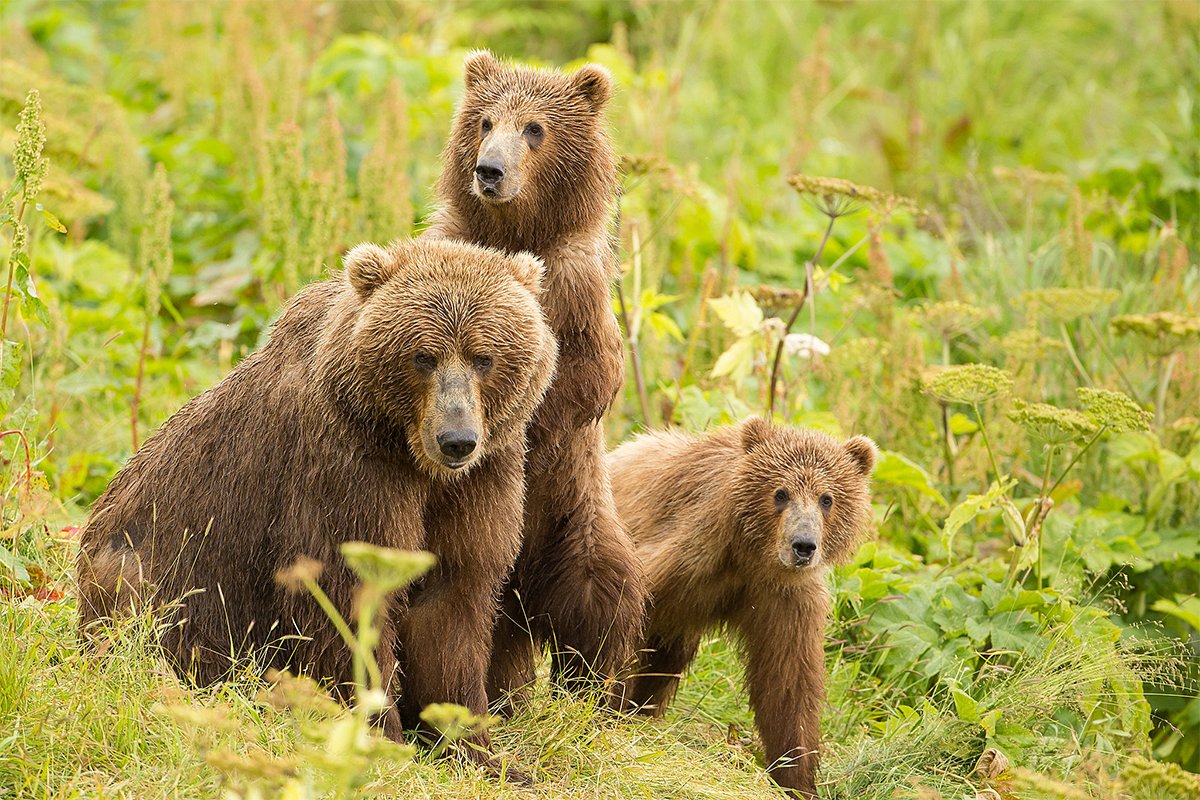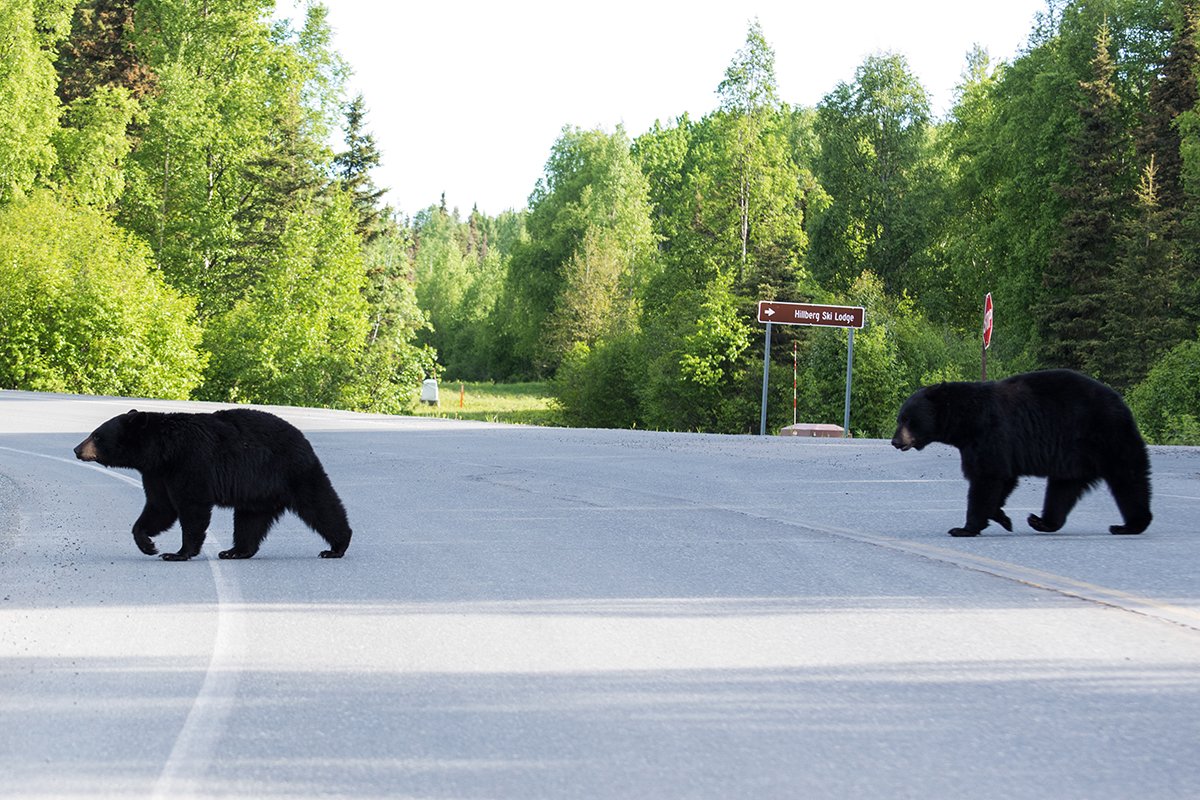Soldiers Stumbled Upon Bear Den Before Deadly Attack on Alaska Base

Two grizzly bear cubs stand by their mother. US Fish and Wildlife Service photo by Lisa Hupp, via Flickr.
Two soldiers scouting for possible training locations may have surprised a mother brown bear and her two cubs in their den, prompting the attack that left one soldier dead and another injured at Joint Base Elmendorf-Richardson in Alaska, according to wildlife officials and a person with knowledge of the incident.
Authorities have released scant details about the incident, but JBER officials did confirm that a soldier had been killed by a bear Tuesday, May 10, on the base, which is used by both the Army and the Air Force. The soldier was attacked on a remote, densely forested training area on the base. Officials have not yet identified the soldier.
A person with knowledge of the attack who was not authorized to speak on the record said the soldiers were scouting a range known as Training Area 412 for use as a future land navigation course when they passed a den containing a female brown bear and two cubs. The bear came out of the den and attacked, the source said. The surviving soldier was able to use bear spray and the bear left, the source said.

The wounded soldier was able to call for help, the source said, and members of the 673rd Security Forces Squadron were the first on scene.
Capt. Derek DeGraaf of the Alaska Wildlife Troopers confirmed to Coffee or Die Magazine that a brown bear sow was involved in the attack. Three people total were in the area and two soldiers got close to the den, according to DeGraaf. The second soldier’s injuries were not life-threatening.
Military members in Alaska, like many civilians, often carry bear spray or even firearms in wilderness areas because of the potential for bear encounters. JBER officials were not immediately able to confirm what bear safety guidance soldiers receive on base, or what kind of bear protection the soldiers might have been carrying.

Coffee or Die reached out to JBER and the Alaska Department of Fish and Game Wednesday to confirm additional details about the incident, but officials did not immediately respond.
JBER spans more than 64,000 acres of coastal lowlands just north of Anchorage, lying between the Chugach Mountains and an inlet known as Knik Arm. Much of the base is heavily wooded, and both black and brown bears are plentiful, according to wildlife officials. While both species can be deadly to humans, brown bears — which are also known as grizzlies — are typically larger than black bears, ranging in weight from 500 to 900 pounds.
Attacks, however, are rare. From 2000 to 2017, 68 people were hospitalized by bear attacks in Alaska, and 10 people died, according to a report from Alaska health officials. Most fatalities involved brown bears, and attacks were most common in the summer months.
Following the attack, officials said Training Area 412 was closed to the public. When soldiers aren’t training, JBER is often open for hiking, hunting, and fishing.
Editor’s Note: This story has been updated to reflect the species of the bear after it was confirmed by wildlife officials.
Read Next:

Hannah Ray Lambert is a former staff writer for Coffee or Die who previously covered everything from murder trials to high school trap shooting teams. She spent several months getting tear gassed during the 2020-2021 civil unrest in Portland, Oregon. When she’s not working, Hannah enjoys hiking, reading, and talking about authors and books on her podcast Between Lewis and Lovecraft.
BRCC and Bad Moon Print Press team up for an exclusive, limited-edition T-shirt design!
BRCC partners with Team Room Design for an exclusive T-shirt release!
Thirty Seconds Out has partnered with BRCC for an exclusive shirt design invoking the God of Winter.
Lucas O'Hara of Grizzly Forge has teamed up with BRCC for a badass, exclusive Shirt Club T-shirt design featuring his most popular knife and tiomahawk.
Coffee or Die sits down with one of the graphic designers behind Black Rifle Coffee's signature look and vibe.
Biden will award the Medal of Honor to a Vietnam War Army helicopter pilot who risked his life to save a reconnaissance team from almost certain death.
Ever wonder how much Jack Mandaville would f*ck sh*t up if he went back in time? The American Revolution didn't even see him coming.
A nearly 200-year-old West Point time capsule that at first appeared to yield little more than dust contains hidden treasure, the US Military Academy said.












